The ideal balance of sweet, sour, and salty pickles makes them the perfect complement to a burger or a perfect snack on their own. Pickles started as a way of preserving cucumbers, but how can you preserve your pickles? Do you need to refrigerate them? We've done the research to get you out of this pickle. Without further ado, let's dive in.
You do not need to refrigerate pasteurized pickles before opening them, but you should keep unpasteurized pickles in the refrigerator. Furthermore, all pickles should be refrigerated after opening, regardless of whether or not they are pasteurized.
In this article, we'll look at how to keep your pickles picture perfect and how to tell if they've turned on you. We'll also look at why some pickles require different storing techniques and how to make your very own pickles at home. Read on to see what the dill is with refrigerating pickles!
![Pregnant woman reaching for a jar of pickles inside a refrigerator, Should You Refrigerate Pickles? [And For How Long?]](https://kitchenseer.com/wp-content/uploads/2022/03/Should-You-Refrigerate-Pickles-And-For-How-Long.png)
Do Pickles Go Bad If Not Refrigerated After Being Opened?
Refrigerated pickles can last a long time, sometimes years, without spoiling or reducing quality. Opened, unrefrigerated pickles, however, are more susceptible to spoiling.
Most commercially available pickles are pasteurized. This means the manufacturers sterilize them at high temperatures during the canning process. You can store them at room temperature before opening them because of this sterile environment.
Once opened; however, bacteria and mold can make their way into your jar and colonize it. Storing them in the refrigerator helps protect against this.
Unpasteurized pickles work a little differently, and they should be stored in the refrigerator both before and after opening.
How Can You Tell If A Pickle Has Gone Bad?
While pickles are more resistant than many foods to spoiling, they are still not immune to it. Eating a bad pickle can make you very sick. Fortunately, there are easy ways to tell if a good pickle has gone bad.
First, you should check with your eyes. Look for any signs of mold. This most often happens when some pickles are sticking up above the brine, but mold can also float on top of the brine itself. If you see any traces of mold, discard your pickles and pick up a new jar.
If your pickles pass visual inspection, you can give them a smell test. An off smell can be an indication that your pickles have spoiled. If your pickles give off a strange or unfamiliar odor, play it safe and toss them.
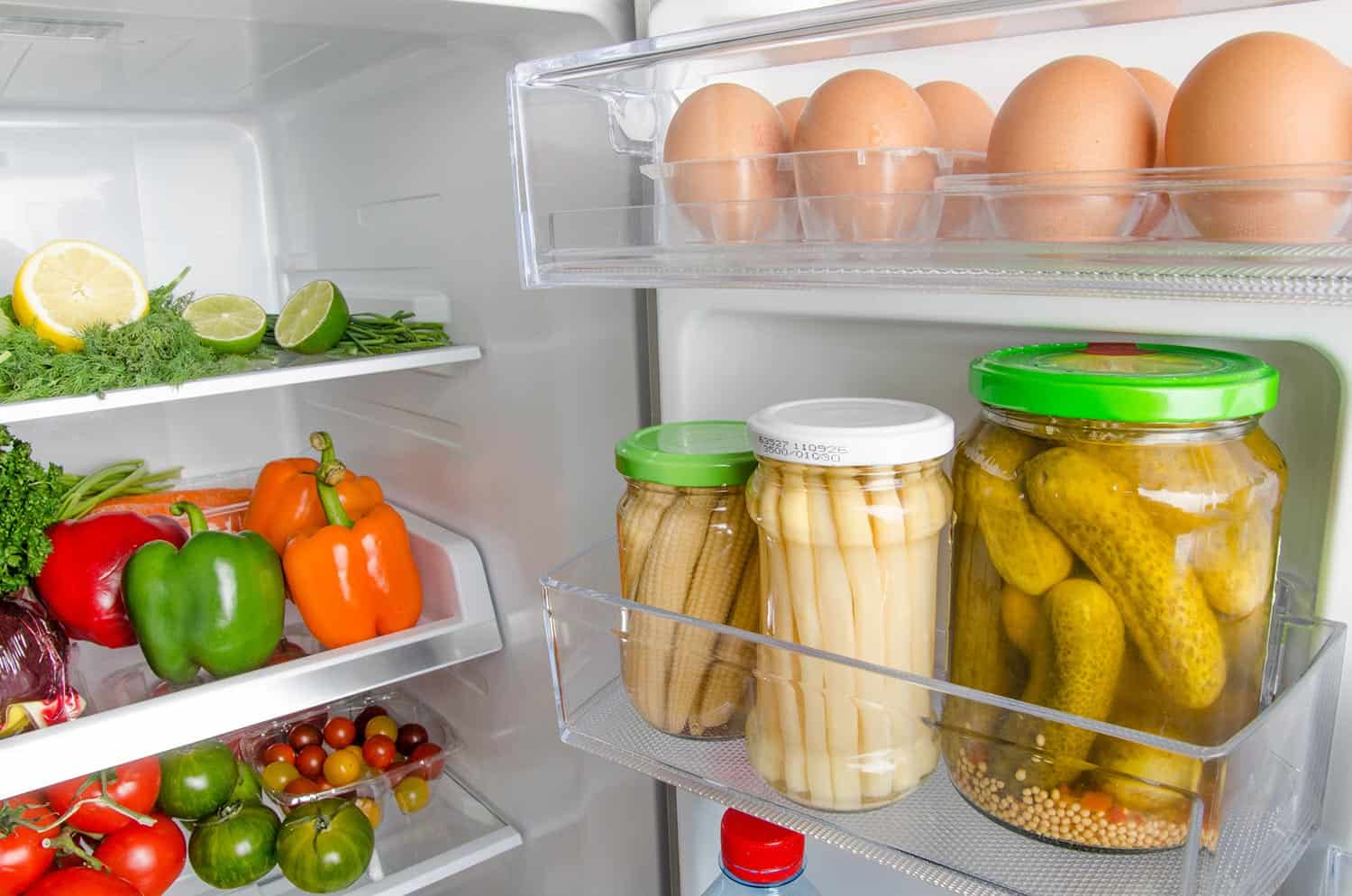
Why Are Some Pickles Refrigerated?
While you find most pickles on the shelf at the store, some are kept in the refrigerator alongside sauerkraut and kimchi. But how are refrigerated pickles different from unrefrigerated pickles?
These refrigerated pickles are the unpasteurized pickles mentioned before. While pasteurized pickles rely on a sterile, airtight environment to stay fresh, unpasteurized pickles rely on fermentation.
Fermentation preserves pickles by cultivating good bacteria. These microbes acidify the brine, which helps kill off any bad bacteria present.
These good bacteria do more than protect your pickles, though. Because these pickles are probiotic, they promote a happy, healthy gut. These pickles are also less likely to contain unhealthy preservatives found in many unrefrigerated options.
Unpasteurized pickles are typically left to ferment at room temperature for several weeks before being transferred to the refrigerator to slow down fermentation.
By the time you buy them at the store, they are already sufficiently fermented. Leaving them at room temperature will cause fermentation to speed up again, resulting in an overly acidic or bitter pickle.
These refrigerator pickles don't last as long as their pasteurized counterparts. Most refrigerator pickles stay good for one to two months if you reseal it and put it back in the fridge each time you take one out.
Like other pickles, you can check that your refrigerator pickles are still good by checking for mold or off odors.
How Long Can Pickles Be Unrefrigerated?
Pickling is a technique for preservation, so you can store pickles for a long time. Unopened, you can keep a jar of pickles unrefrigerated for up to two years or until the expiration date on the label.
Once opened; however, you should refrigerate your pickles. The acidic brine will help protect them longer than most foods at room temperature, but they can still go bad.
Should You Throw Away Refrigerated Pickles After A Power Outage?
Without power, your refrigerator can keep foods cold for four hours. If you've experienced a blackout that cut power to your refrigerator for more than four hours, you'll need to toss many perishable items from your fridge.
According to FoodSafety.gov, pickles are among those foods that are still safe to keep after losing power. However, you should still check your pickles for any mold or off smells to be on the safe side.
As they say, it's better to be safe than sorry, so when in doubt, throw it out.
If your refrigerator is without power for more than a day, you will want to open and clean it to ventilate it and prevent it from growing mildew.
You can learn more about taking care of your refrigerator without power in our article: How Long Can a Refrigerator Stay Unplugged?
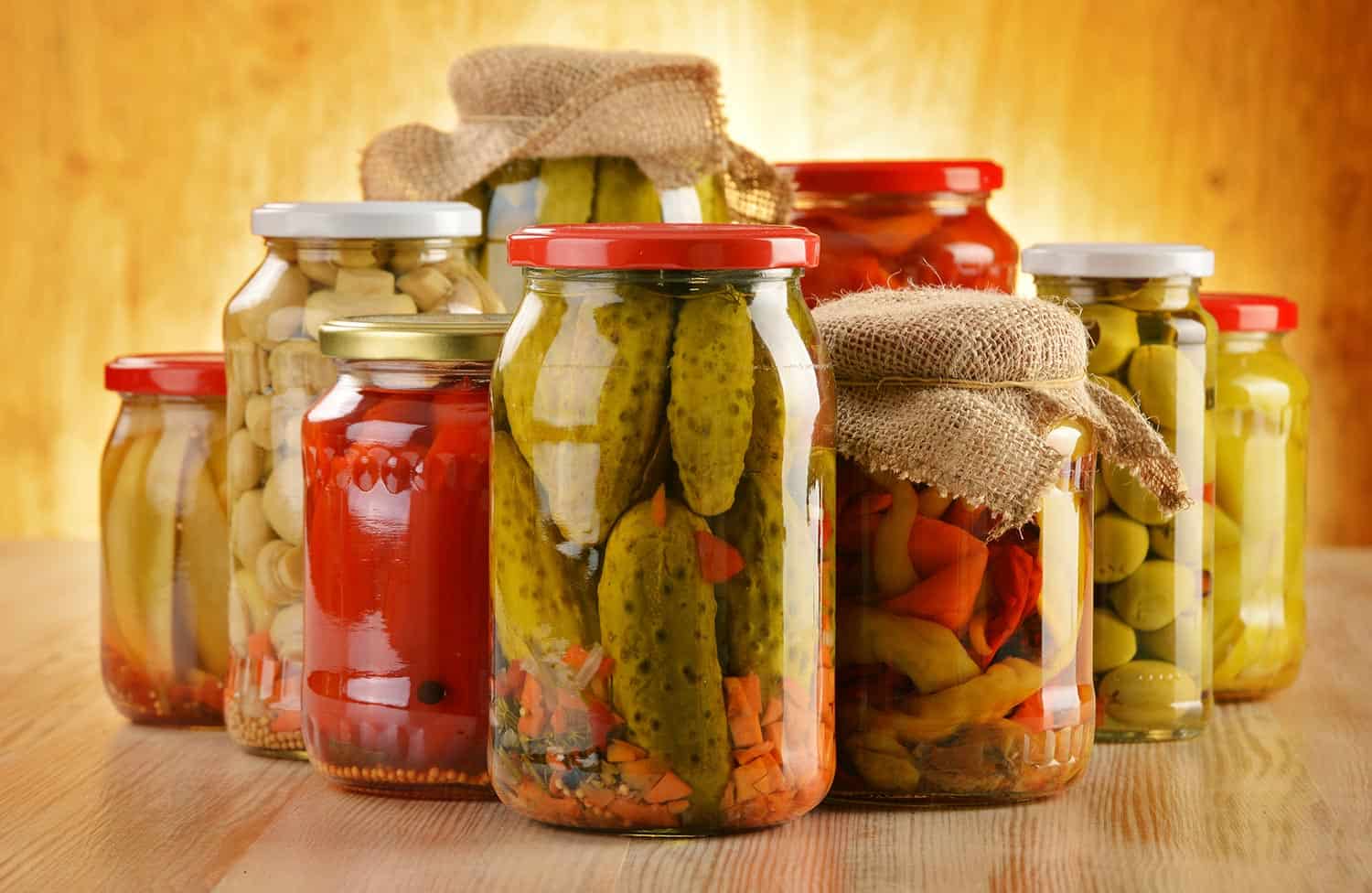
Do You Need To Refrigerate Homemade Pickles?
Making pickles at home used to be about survival and preservation. These days, however, many home cooks are pickling their own cucumbers for quality, customization, and fun.
Store-bought pickles can't hold a candle to homemade when it comes to quality, but what about preservation?
You should store homemade pickles the same as their store-bought counterparts. Store unopened, pasteurized pickles at room temperature in a cool, dark place for two years, but move them to the refrigerator after opening.
Keep fermented, unpasteurized pickles at room temperature until they have reached the desired level of fermentation. This usually takes two to three weeks. After that, move them to the refrigerator.
Store your brined, unpasteurized pickles in the refrigerator immediately.
You can learn more about making pickles with this method in our article: How to Brine Cucumbers for Pickles in 6 Easy Steps.
How To Make Fermented Pickles At Home
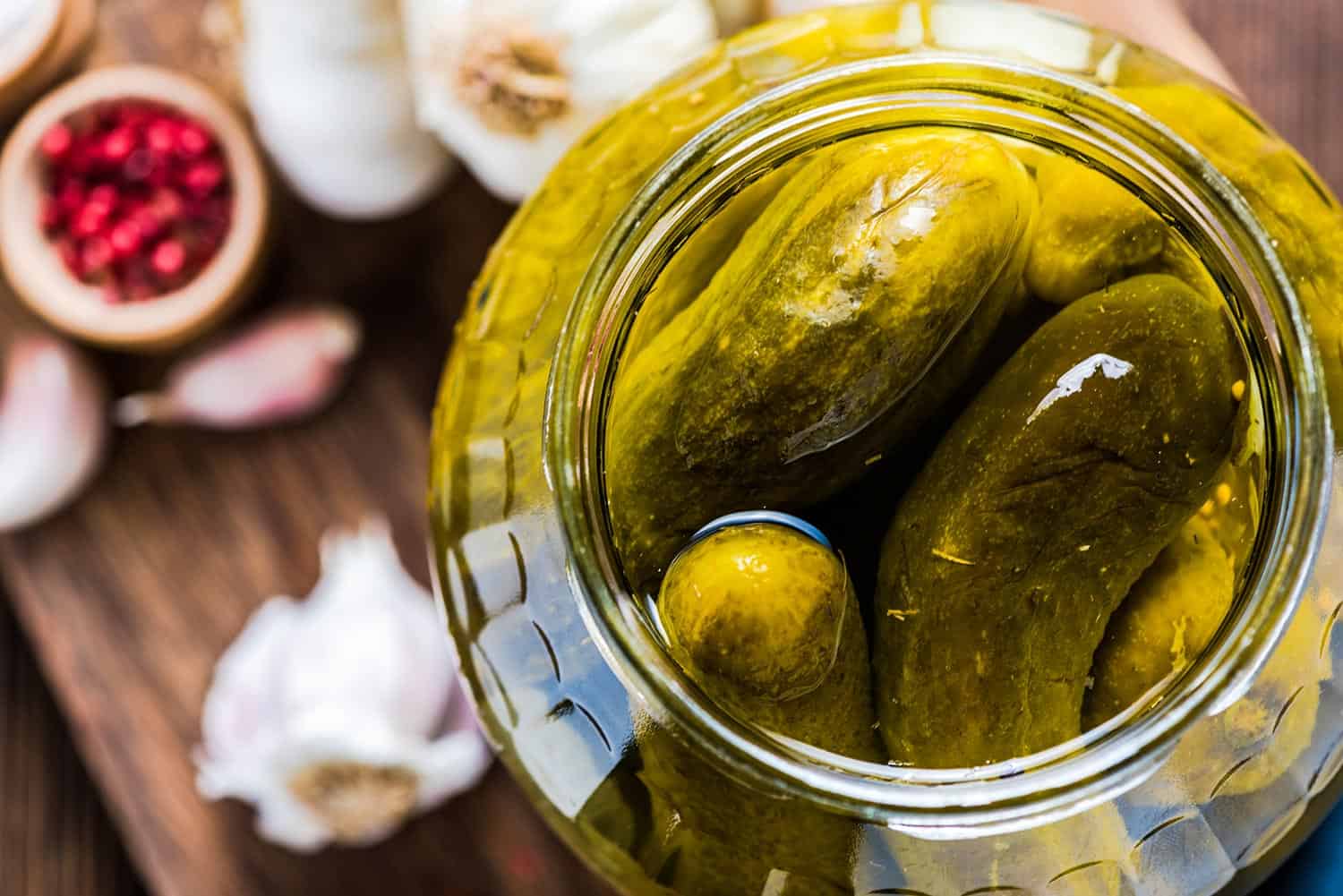
While there are various ways to make pickles at home, fermenting cucumbers is one of the oldest, tastiest, and healthiest ways to pickle your cukes. Not only that, but it's easy too.
Make a brine by dissolving kosher salt in water. You'll use one tablespoon of kosher salt for every cup of water.
Then cover your cucumbers in this brine and stoor them, covered, at room temperature. It's important to keep the cucumbers submerged. If they are bobbing over the top, you can place a ramekin in to hold them down.
After a few days, you'll notice bubbles forming in the brine as it ferments. After a week, you can begin tasting your pickles. They will get sourer and sourer the longer you let them ferment at room temperature. Once they have reached your desired sourness, transfer them to the refrigerator to slow down the fermentation.
While this method only requires three ingredients (cucumbers, salt, and water), you can add your favorite flavorings to the brine. Garlic and dill are popular options, and you can also include your favorite pre-made pickling spice.
Chef John at Food Wishes uses this method to make perfect dill pickles. You can see the process in action in the video below.
Of course, fermentation isn't the only method to make your own crunchy cornichons. The University of Wisconsin has an excellent guide on making pickles in a variety of ways, including with fruits and vegetables besides cucumbers.
Do You Need To Refrigerate Relish?
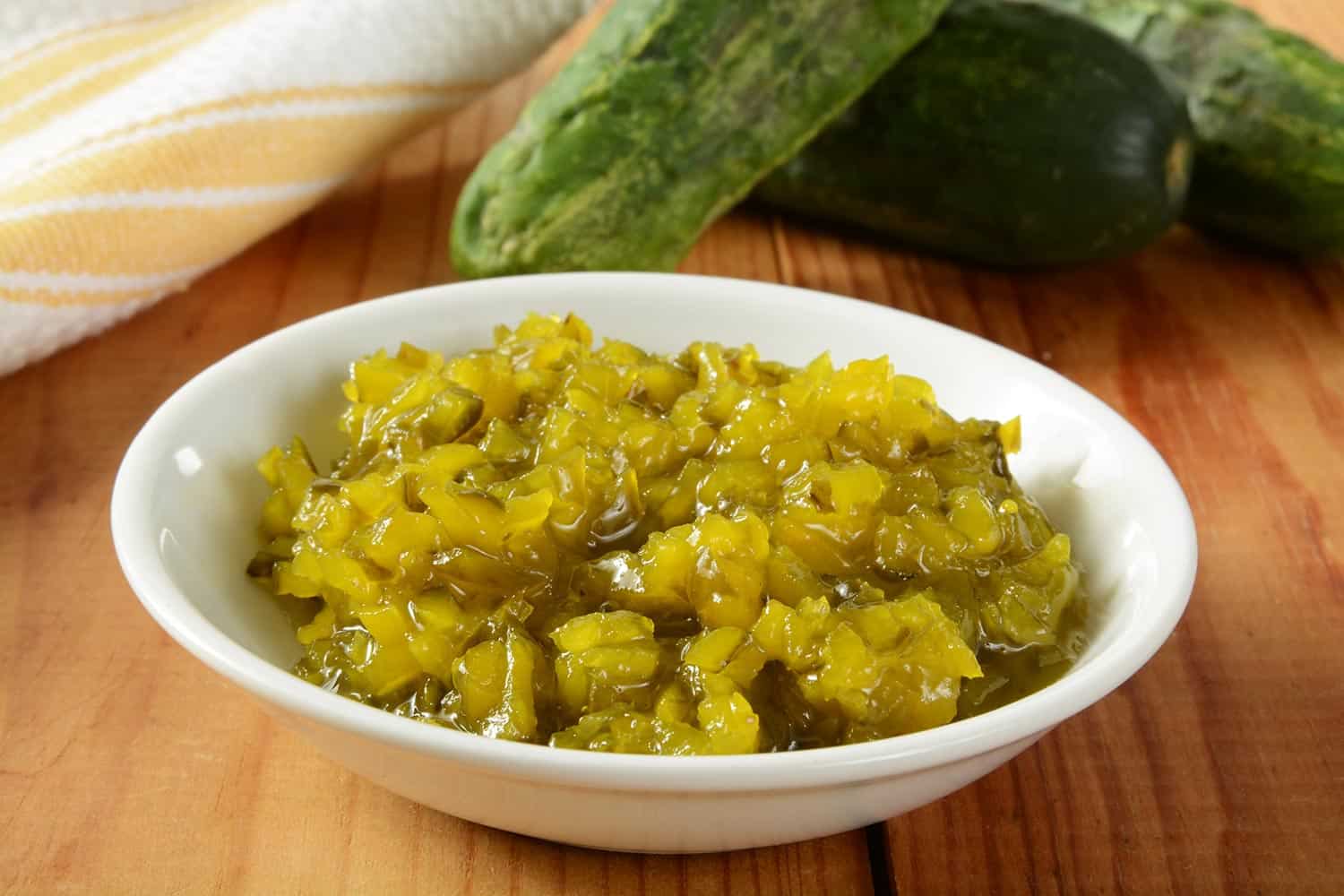
Relish comes in various styles, but the most common is made with finely chopped pickles. Much like your ordinary pickle, relishes are often sold pasteurized in airtight jars at room temperature.
Also, like pickles, relish should be kept in the refrigerator after opening. The airtight seal keeps relish safe when stored on the grocery store shelf, but once that seal is broken, it is vulnerable to bacteria, molds, and other harmful microbes.
Final Thoughts
People have been eating pickles since ancient times. Pickling is one of the best ways to preserve produce, so long as you know how to store your pickles safely.
Now you know when you do and don't need to refrigerate your pickles and more about the difference between pasteurized and unpasteurized pickles. We've even seen how to make your own dill pickles at home, so you can relish in all their crunchy goodness whenever the urge strikes.
Whether kosher or dill, cornichon or gherkin, you'll know just what to do next time you need to store your pickled pleasure.

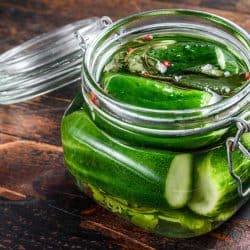
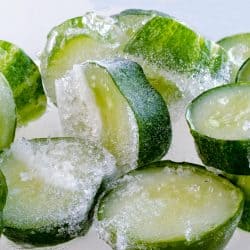
![Homemade cucumber and mint lemonade in a glass on a blue wooden background, Should You Keep Cucumbers In The Fridge? [The Answer May Surprise You!]](https://kitchenseer.com/wp-content/uploads/2021/08/Homemade-cucumber-and-mint-lemonade-in-a-glass-on-a-blue-wooden-background-250x250.jpg)
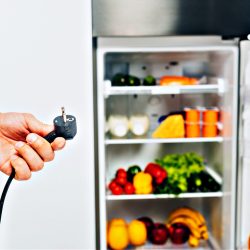

![Woman cleaning the inside wall of a fridge, How To Clean Mold From Fridge [Inc. Seal]](https://kitchenseer.com/wp-content/uploads/2022/06/Woman-cleaning-the-inside-wall-of-a-fridge-250x250.jpg)